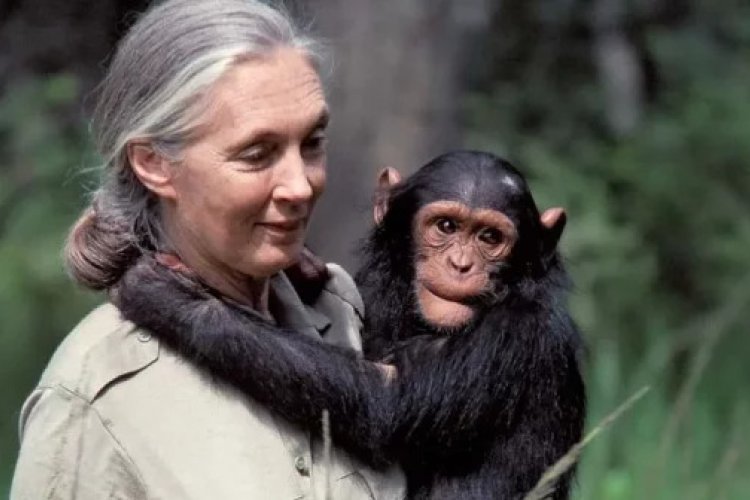Invasion of the Baby Snatchers: New Documentary Zooms In on Kidnapping in China
Those of you who keep a good China blogroll have probably heard of Chinageeks.org, where founder Charles Custer works to provide a community of people interested in China with deeper analysis of the country’s here and now.
For the last year or so, Custer’s also been hard at work on a new documentary film, Living With Dead Hearts, which takes a close look at kidnapping in China and how affected families cope or try to fight back.
If you want to know more about the kidnapping issue itself, check out Custer's recent article on Foreign Policy, as well as case studies of missing children and their families here. As for the documentary, I for one am nervous. This is the kind of subject that makes me want to cry like a baby and kick someone in the groin repeatedly - very strange mix of emotions. We’ll have to wait until Custer and his team finish shooting and editing before we can actually see it, but for now the director himself is taking questions.
So fill us in: How did an underground hip-hop artist and China blogger such as yourself become interested in China's kidnapping issues?
Well like anyone I see kids begging on the street from time to time, and while I was living in Harbin I became good friends with an ex-cop who sort of schooled me in the way things work in China behind the scenes. I asked him about the beggar kids, and from there we got into talking about the problem of kidnapping, and ever since then it's been something I've paid attention to.
Social issues and cynicism go hand in hand these days, so I have to ask: Children are kidnapped all over the world - what is unique or especially alarming about this practice in China?
First, the numbers. The official government number is around 10,000 kids kidnapped a year, which is already pretty horrifying, but the US State Department pegs it at more like 20,000, and some independent estimates I've seen go as high as 70,000 kids kidnapped each year. To compare, although many children are reported missing in the US each year, most end up having been taken by family members; there are only a few hundred real kidnappings (where a stranger snatches a child for ransom or other profit) in the US each year.
Secondly, unlike kidnappings in the West, kids here are rarely if ever kidnapped for ransom, and once kidnapped the chances of them ever seeing their families again are quite slim. Some kids are sold into adoption, others into lives on the street, prostitution, or even forced labor. Kids sold into street begging are even sometimes intentionally crippled or maimed to make them appear more 'pathetic' in the hopes that this will allow them to make more off of begging.
And as you know, there are tons of serious issues in China. Why should people pay attention to this one?
It's important because the victims here are children. Lots of different famous people have said things along the lines of, “A society can be judged by how it treats its weakest members,” and I think that's fair. The tens of thousands of children who are kidnapped each year have no way of defending themselves or bringing attention to their cause. And the parents who lose children also tend to be relatively poor, with few resources to draw on in their search for their kids.
Moreover, the root causes of the kidnapping issue do speak to a lot of China's other serious issues, from corruption and freedom of speech issues to China's culture of silence and the it's-none-of-my-business attitude that often lets kidnappers operate with relative ease. If China were able to completely eliminate this kidnapping problem - difficult, but not impossible - it would resolve or at least lessen a number of other problems too, I think, because to truly stamp out kidnapping you have to fight corruption and complacency, you have to give the victims a real voice, and you have make regular people care enough about the issue to get involved and be willing to do things like report it to the police when they're made aware of a kidnapping case.
Your film follows a couple families looking for their kidnapped children as well as an adult who was kidnapped and is looking for his family. How much hope do you have that they’ll find their family members?
Certainly, we're very hopeful that one or even all of our subjects will be able to find their children again, and we're doing our best to help them promote their cases on the off chance that someone might have seen their kids (photos and details about them are here).
That said, statistically speaking, the chances are very slim. Many, many parents lose their children to kidnappers each year, but very few ever see them again. This is especially true in the case of someone like the Liu family, as their son Jingjun was kidnapped too young to be able to remember anything later that could lead him home. Their best chance is that the police happen to uncover a kidnapping ring connected to Jingjun's case and hope someone tells the police something useful. Lei Xiaoxia's family has a bit more reason to hope, as at least their daughter was old enough that she knows where she's from, knows her family members, and knows what's happened to her. There's a decent chance that if she can escape from wherever she's been taken, she might be able to find her parents.
In any case, you never know. But the statistics are not on the parents' side.
Any moments talking with your film subjects that really crystallize these issues?
One moment that really has struck me was listening to Li Yong, the adult who was kidnapped as a kid, talking about his experiences in his new "home" after he was sold to a family. Everyone knew what had happened. He spoke a different dialect than anyone else in the area, and he walked around the neighborhood telling people he'd been kidnapped and telling them his parents' names. In school, kids used to tease him because his parents had bought him rather than given birth to him. Everyone knew, but no one said a thing to the police until over a decade later, at which point it was way too late to do anything, although the fines the police levied on his "adoptive" parents did prevent Li Yong from being able to attend college.
That is just painful. Like makes me want to punch someone in the face painful. Are there a lot of stories like this?
Yeah, being in the room with them and hearing these stories, it's hard not to be moved by it, moved and really really pissed off by it. In the case of Lei Xiaoxia, for example, we're still investigating the background, but her parents explained to us that after she was kidnapped, police failed to check the surveillance tapes at her school or at any local bus or train stations. They just "forgot." They also failed to interview any of the girl's classmates at school, so when a reporter finally did and discovered that she HAD been to school at least briefly that day, and that the school's cameras would probably have a recording of it, it was too late – the system automatically deletes to conserve space after a certain amount of time has passed. Of course, checking these tapes should have been one of the first things the police did, but according to the parents, they have basically done nothing to investigate other than sending out a small group to look for her the night they reported her missing.
Wow. That is astounding. So what have you been most shocked by while making this film?
I guess the lack of police involvement, from the parents' perspective anyway, has been kind of a revelation to me. I knew, of course, that kidnapping gangs were highly organized and difficult to break, but if the police are even trying to find these kids, they've certainly done a terrible job of communicating that to the parents.
Why did you change the title of the film from Finding Home to Living with Dead Hearts?
The more we shot the more we realized that kids finding their homes is very unusual. It's not at all the norm and it didn't really represent the footage we were getting or the truth of the situation on the ground. The new title was something we agonized over for quite some time. Then I was reviewing one of the interview transcripts and noticed Lei Xiaoxia's mother had said that living without her child was like living with dead hearts for them. Since a big part of our film is approaching this problem from the perspective of the parents, that's a much more indicative and evocative title.
As you make the film, is it hard to find that line between sensationalizing something so people will pay attention, versus giving a really complex and honest picture that is harder for people to "latch" on to?
Yes, and no. The emotion and the stories that are there are actually sensational, I think. It's hard to overstate the drama of someone having their child kidnapped. The difficulty, I think, comes in trying to capture the complexity of what led to that and not falling into the trap of making some kind of polemic against one cause, when other factors are also at play. That's a trap that some other work on this topic has fallen into – I don't want to call anyone out here, though – so it's something we're trying hard to avoid. Of course, that does make it harder for the audience to catch everything at first glance, so we're going to have to strike a delicate balance there. We're still shooting; that battle will play itself out more when we start editing, and ultimately I guess the viewers will be the judge of whether or not we were able to do justice to the truth of the issue.
You're still raising funds to finish the film. What needs to be done? How can people help?
The primary expenses we're raising money for are travel and editing. People can help by donating at livingwithdeadhearts.com. There are some cool rewards for donating money, and you can choose to donate however much you'd like. Also, 20% of what we raise this time around will go to the Xinxing Aid center for street kids, because we wanted to help them out too and it would be difficult for them to do something like this on their own.
But for people who don't want to donate, there are lots of other ways to help. The easiest way is just to spread the word, tell friends and family members and convince some of them to donate. But of course beyond that there are less obvious ways to help, too. Perhaps you have a skill that might be useful to us -- for example, we'll need lots of music for the film, so musicians with music that might work can help by donating us songs and the rights to use them in the film.
Are you hoping to get both the local and foreigner communities involved?
We haven't really tried to mobilize the Chinese community too much yet, because it's a little risky. We don't want to attract too much attention until the film is finished – not that it's a political film, it's actually meant to be a very personal film, but I'm not sure everyone will see it that way, and we want to be careful to protect ourselves and our subjects. So before we promote it too much in Chinese we want to have the film done so that we can be very clear about what it is and what it isn't.
That said, I've been extremely moved by the response of the 'laowai' community, for lack of a better term, to our project, especially the China blogger community. At this point it's probably already apparent the ways in which a number of people helped out because it's plastered all over their websites - including this one! But everyone really stepped up in a way that was just incredible.
I want to specially mention Kaiser Kuo here, who did quite a bit to help us raise money the first go-round, in addition to making a generous donation himself. Lots of people stepped up and helped just out of the goodness of their hearts, and we're very grateful for it, and continue to be amazed by it as we go through this next round of fundraising and continue to see the generosity at work.
But that's not to say it's not there in the Chinese community. I feel quite certain it is, and I think we're going to see that very clearly once the film is finished and we begin really engaging with them as well as foreigners.
Living With Dead Hearts is set for tentative release in 2012. We'll keep you posted on screenings and related events. Meanwhile, check out the details and list of rewards for donations here.
Photos: courtesy Charles Custer
Related stories :
Comments
New comments are displayed first.Comments
![]() marilynmai
Submitted by Guest on Wed, 10/26/2011 - 19:33 Permalink
marilynmai
Submitted by Guest on Wed, 10/26/2011 - 19:33 Permalink
Re: Invasion of the Baby Snatchers: New Documentary Zooms ...
Just trying to understand you here (osamabinladen ... ). Are you upset that the documentary:
a) will be too inaccessible?
b) will be too randomly accessible?
c) will get pirated?
d) will take up valuable space alongside remakes and sequels that you are eagerly awaiting?
I want to hear you out on this, but it would help to get some clarity on your specific concerns.
Validate your mobile phone number to post comments.






